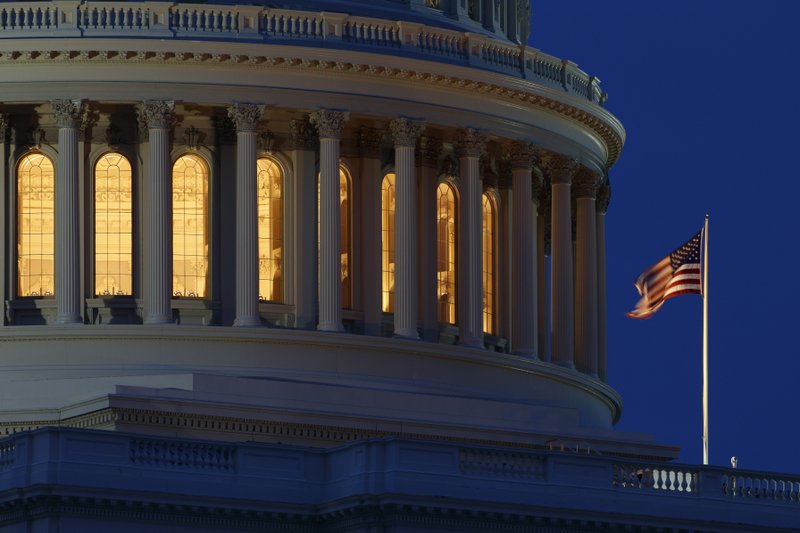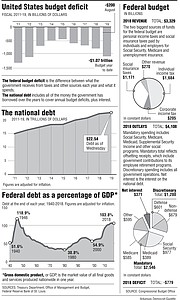WASHINGTON -- The U.S. government's budget deficit increased by $169 billion to $1.07 trillion in the first 11 months of this budget year as spending grew faster than tax collections.
The Treasury Department reports that the deficit for August totaled $200 billion, compared with $214 billion in August 2018.
Since Oct. 1, the budget gap rose by about 19%, according to the monthly budget report. The comparable deficit a year earlier was $898.1 billion.
The budget received a nudge from customs duties, which surged to $64 billion in the fiscal year-to-date from $36.7 billion a year earlier, reflecting the White House's tariffs on Chinese imports, steel and other goods. Even still, income from duties represents a small share of overall federal revenue.
Fiscal year to date, revenue rose 3% from a year earlier to $3.09 trillion. Outlays increased by 7% to $4.16 trillion, the figures showed.
Budget experts project a surplus for September, which would push the total 2019 deficit down slightly below the $1 trillion mark. The Congressional Budget Office is forecasting a deficit this year of $960 billion, compared with $779 billion last year.
Going forward, the Congressional Budget Office sees the annual deficit topping $1 trillion in 2020 and never falling below $1 trillion over the next decade. The higher deficits reflect higher government spending for Social Security and Medicare and the impact of the 2017 tax cuts.
Accumulating deficits add to the overall federal debt, which totaled more than $22.54 trillion as of Wednesday. That figure includes more than $5.6 trillion the government owes itself, including about $2.8 trillion borrowed from the Social Security Trust Fund, according to Treasury Department reports.
Bloomberg News reported Thursday that officials in President Donald Trump's administration have discussed offering a limited trade agreement to China that would delay and even roll back some U.S. tariffs for the first time in exchange for Chinese commitments on intellectual property and agricultural purchases, citing people familiar with the matter.
It's still a preliminary proposal and Trump has yet to sign off.
Information for this article was contributed by Martin Crutsinger of The Associated Press; and by Sarah McGregor of Bloomberg News.
A Section on 09/13/2019

